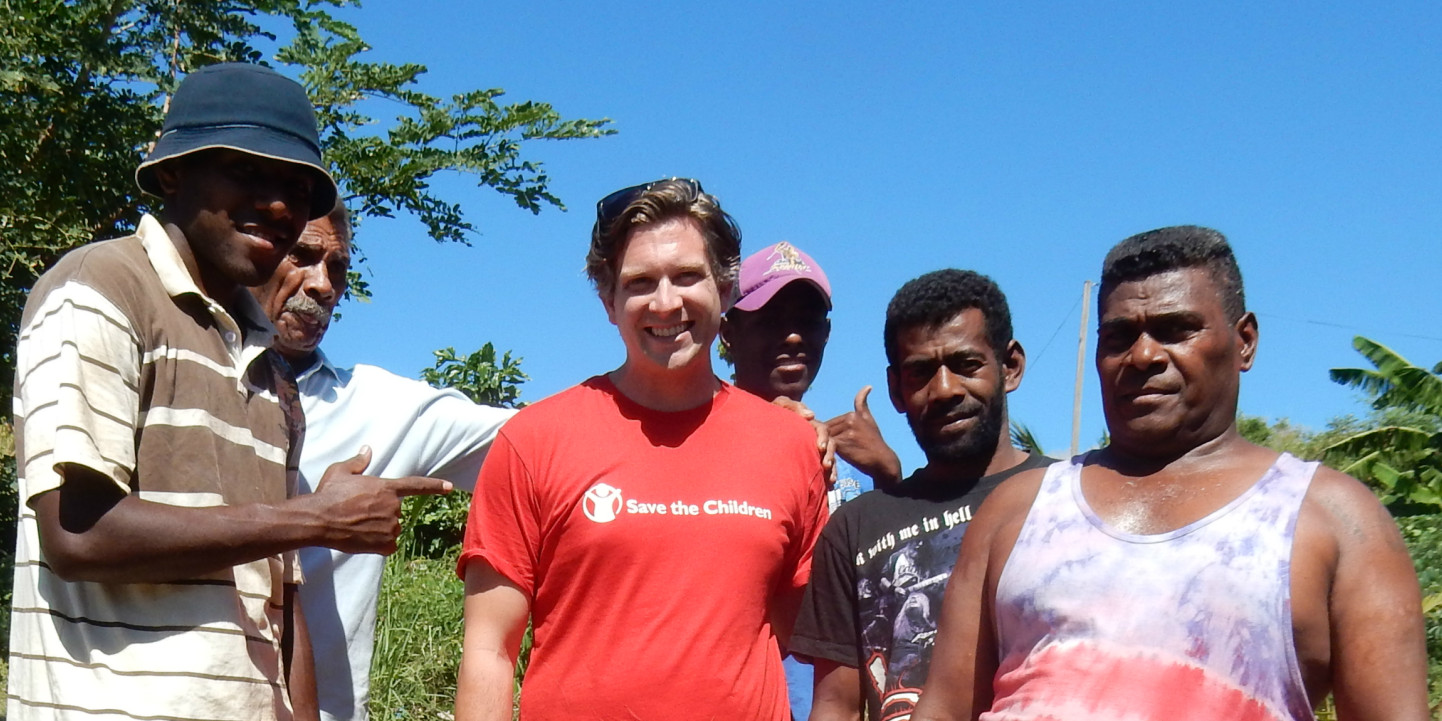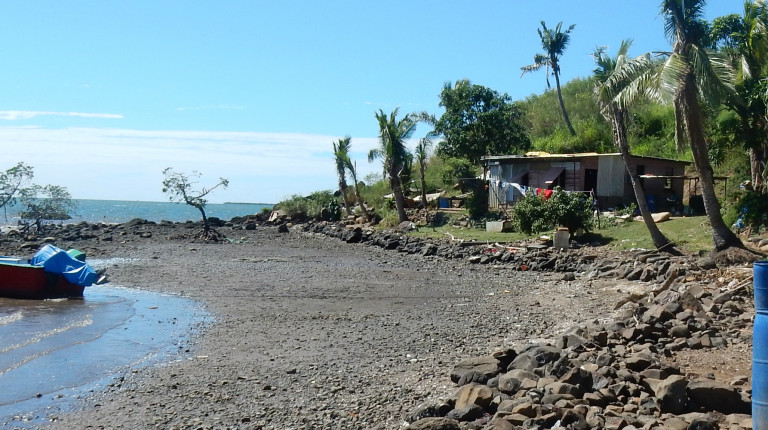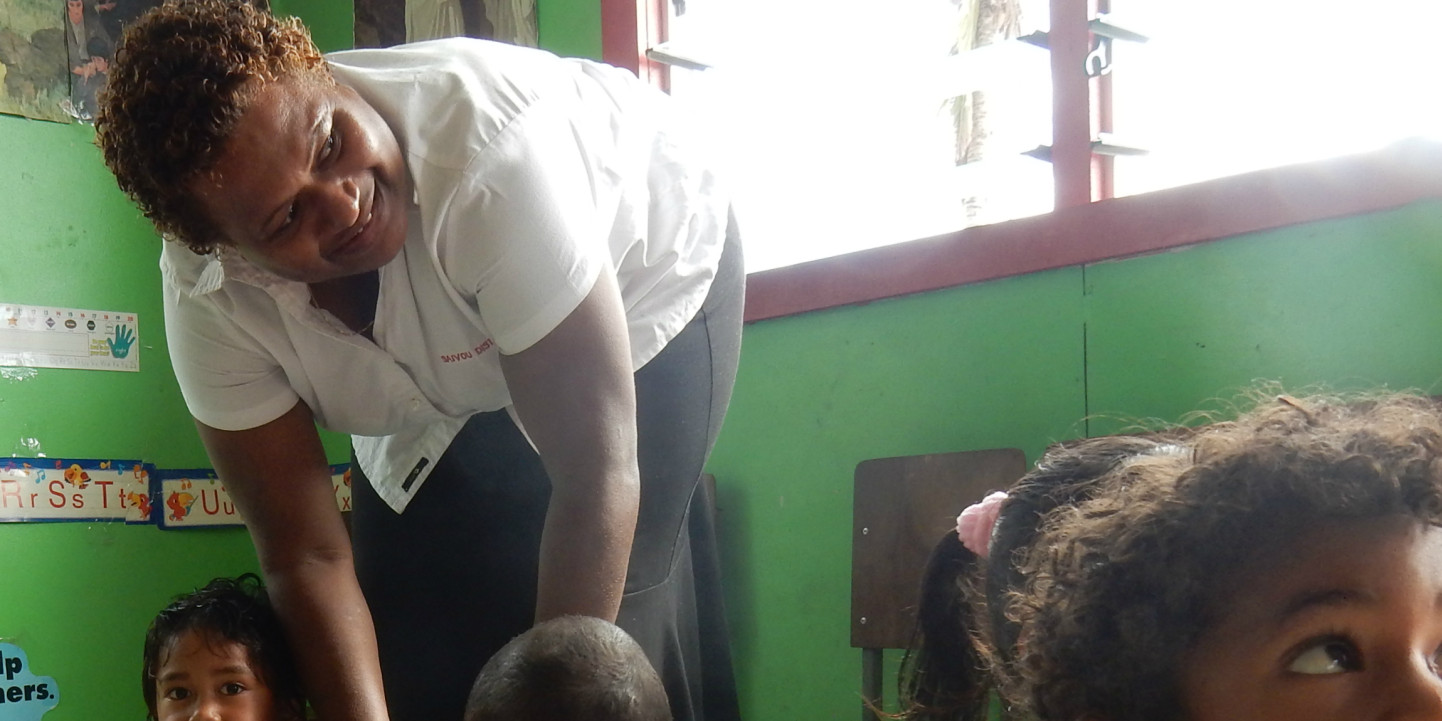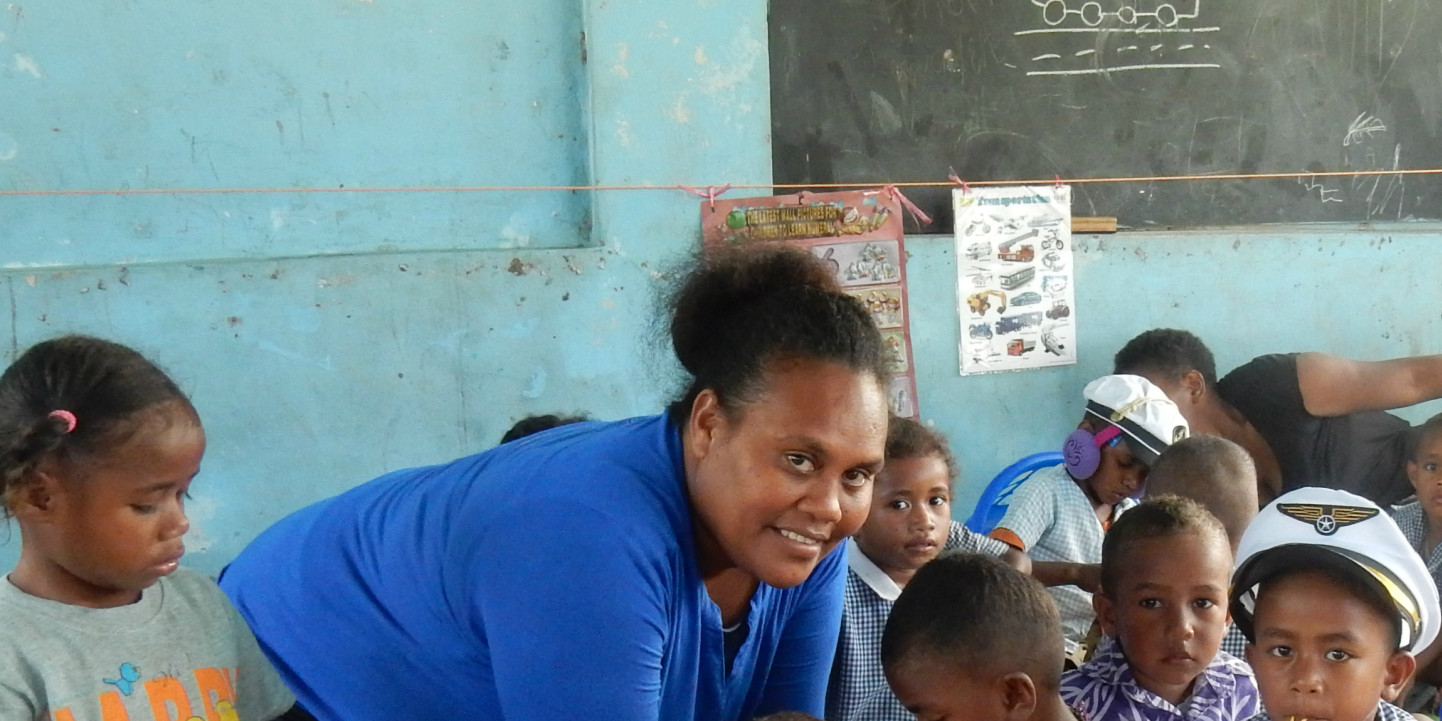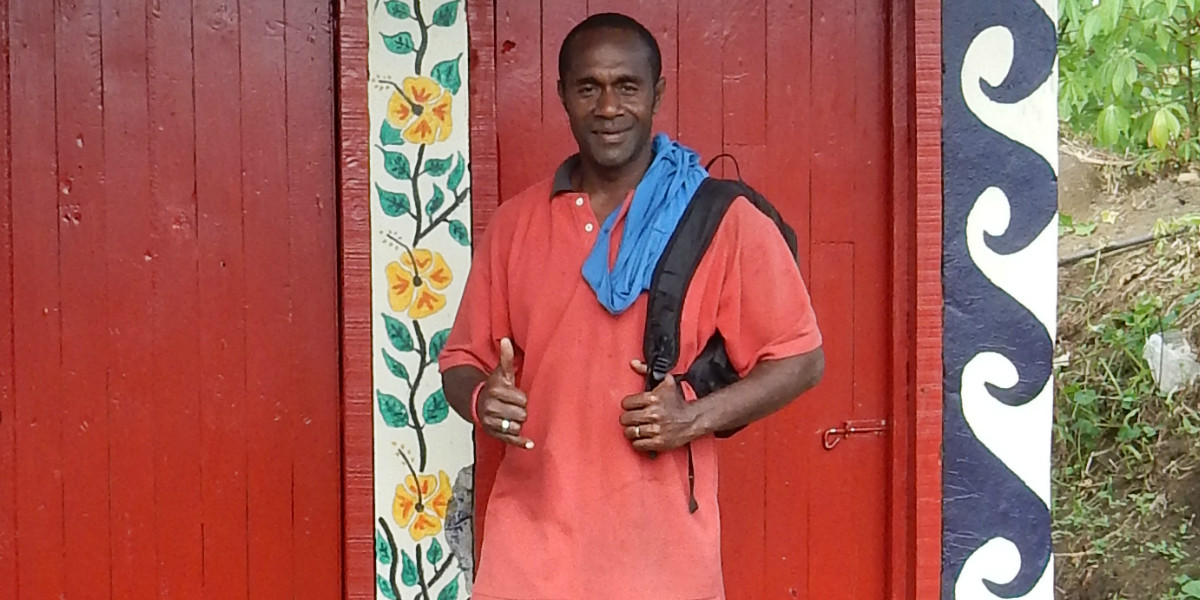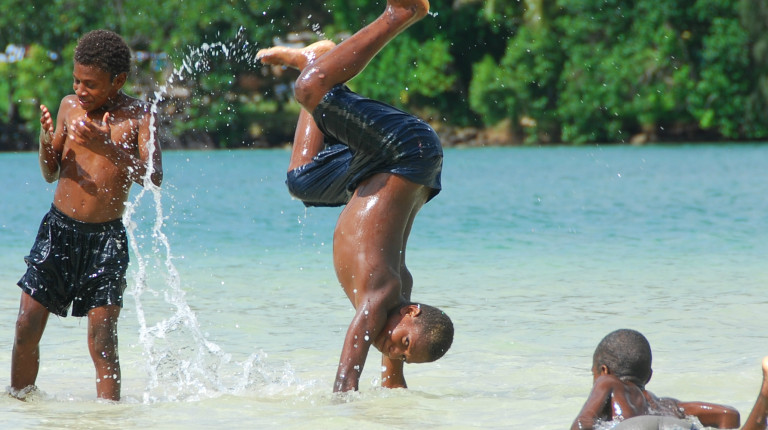It is almost a decade since my last visit to Fiji. The smells, the sights and feelings flood my senses as I arrive - reminding me why this country was where I decided to pursue a career in development.
Three months before my visit, a category five cyclone tore through the country and decimated many villages. As I drove around the island of Viti Levu, I could see the leaves growing again on broken trunks around the debris, the greenery was returning but nothing like the dense green I remember.
Through the work of the Fijian government, local communities, and NGOs like Save the Children the clean up and rebuilding process is under way and in some places it is hard to see the effect of Winston. Yet the shimmering tarpaulins branded with donor agencies, missing roofs, scattered fallen trees and iron in the fields still reveal hints of the traumatic storm.
The Save the Children Fiji office is thriving in its emergency response. From 7 staff at the start of this year, the team has swelled to around 50 - including an International Team from Sweden, Pakistan, India, UK, Australia, Mongolia and Thailand. This team is working alongside amazing Fijian staff who are making the work a reality on the ground. I met several inspiring people around the island and was reminded that good development work is about supporting local communities to discover and deliver their own development. After Cyclone Winston ripped through the country, many communities were shocked and struggling to put their lives back together. Save the Children’s work enabled these people to work within their own communities to protect their children, get life back to normal and build back better.
Two pre-school teachers, Miriama and Rosie, explained to me that in the days after the cyclone, adults were cleaning up and trying to piece their lives together, meanwhile children were keeping quiet. They both explained how hard it was to find a way to provide the children with a safe space where they could find the ability to play again. Save the Children staff delivered materials and gave training in how to set up a child friendly space, where children can be safe and begin to recover in a supportive environment.
Transitioning back to normalcy takes more than just a safe space and some training. Save the Children is also working within communities to implement cash payments for clean-up work, contracting local carpenters to rebuild the water and sanitation systems so that toilets are up and running and it is safe for children to return to school. Next door to Rosie’s pre-school is a toilet block where Maikelu Ratu - a local builder in Saivou Village - has been employed by Save the Children to repair the toilet blocks for the school and pre-school, serving four different communities. There are carpenters like Maikelu across the country making sure Children can safely get back to school.
Further around the coast I managed to visit more pre-school communities in the Ba and Lautoka areas. Two of these pre-schools, Nakavika and Vunato lost their toilet blocks during the cyclone, and have had similar teams of local carpenters rebuilding with Save the Children Support. In these areas Save the Children will be delivering two projects that aim to ensure these communities are stronger when disaster strikes again. We will be constructing water systems that are resilient, working with government to increase awareness, building better evacuation centres, and making sure children and communities take ownership and action to prepare for disasters.
In this region the next big cyclone will come but with our support these communities will be better prepared, ensuring these events are less of a disaster.


